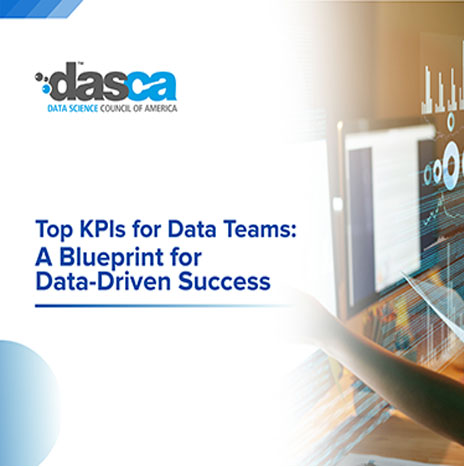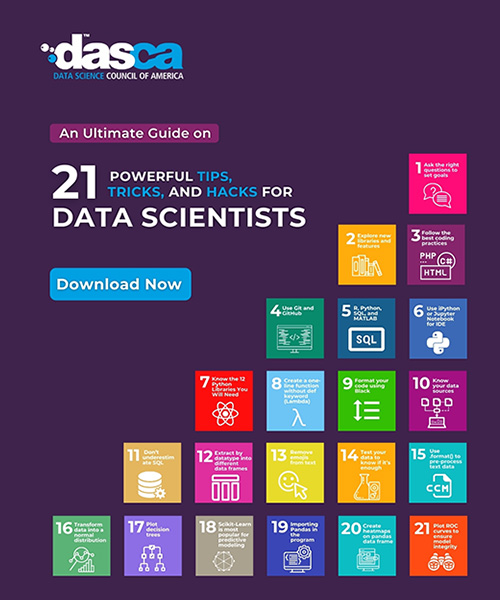
Author: Jennifer Birch
As businesses strive for operational efficiency, the importance of data science has become increasingly apparent. The data science platform market has grown rapidly, with a value of USD 4.7 billion in 2020 and an estimated worth of USD 79.7 billion in 2030. The use of data science technologies allows businesses to effortlessly perform data modeling and deployment of machine learning (ML) models, which are capable of compiling and analyzing vast amounts of data with minimal dependence on external engineering resources.
In addition to ML models, data science is adopting other innovations, such as artificial intelligence (AI), for more significant breakthroughs in data technology that will drive future market expansion. This is why data scientists must continually stay abreast of technological advances in their field. In this article, we will discuss some data science developments that data scientists should anticipate soon:
Enhancing Efficiency and Safety in Energy Plants with AI Monitoring
As more technological innovations adopt data science, data scientists may see their role expand beyond offices and into power plants to implement AI monitoring. Data science is primarily combined with machine learning (ML) to find trends and correlations between data. Unlike ML, which has a limited scope that focuses on establishing accuracy and finding patterns, AI mimics the intelligent decision-making made by humans. Given the extensive use of AI, data scientists work with other specialists to develop a comprehensive technology for various functions.
As noted in a recent study, artificial intelligence is projected to be successfully implemented in nuclear plants through the collaboration of operators and data scientists. Maintenance professionals can provide critical data for the basis of AI software that can support the activities of nuclear facility operators by mitigating human errors. Moreover, the Electric Power Research Institute's research highlights the potential of their data program, "Data-Driven Decision Making (3DM)," in powering AI-based machine vision models for conducting thorough inspections in nuclear power plants. These AI and data science involvements can ensure the safety of these power plants while optimizing the workload for inspectors.
Re-evaluating Manufacturing Strategies in The Fashion Industry
Manufacturing is a crucial industry where raw materials are transformed into consumer goods. As it relies heavily on the flow of materials and goods, it has been essential to making manufacturing processes efficient. Maryville University recently shared its perspective on the future of data science, highlighting its significant impact on the manufacturing industry. The use of data science has enabled companies to minimize scrap rates, enhance fabrication efficiency, minimize supply chain forecasting inaccuracies, and increase product yields by up to 30 percent. These impressive results demonstrate the power of data science in transforming the manufacturing sector and its ongoing potential for growth and improvement. Furthermore, data science can use specific applications to speed up efficiency, boosting a business’ competitive advantage.
In the case of retailer Macy’s, they have leveraged data science and analytics to ensure the right balance in inventory management. Fashion business forecasting can be challenging, especially considering different clothing sizes, designs, and colors. The use of data science technology has enabled the company to better forecast where the demand is going, allowing them to shift manufacturing and production accordingly and minimize the loss of unpopular products. This, in turn, has allowed Macy’s to keep stock levels healthy, with their inventory rising only 7 percent year-on-year in the 2nd quarter, compared to other stores like Target and Kohl, which had a 36 percent and 48 percent increase respectively that quarter. Through greater efficiencies in data science, more businesses can take advantage of optimized inventory and maximum profits.
Strengthening Data Governance in The Military Sector
The implementation of data governance in organizations has provided data scientists with a foundation for making informed and confident decisions. Data scientists can trust the information they use to make important business decisions by ensuring the reliability, consistency, and security of data. This expanded role for data scientists extends beyond traditional industries like banking and finance and into the realm of national security. The military, for example, relies on data science technologies to minimize malicious attacks and respond quickly to digital system issues. This not only saves the military time and resources, but also helps protect the country against potential cyber threats.
In addition to improving decision-making and security, data governance has also led to cost savings and increased efficiency in various industries. By promoting transparency and accountability in data management, data governance has helped organizations streamline their operations and make better use of their resources. The implementation of data governance has helped to provide a secure and reliable foundation for data scientists to make informed decisions. As data continues to play a critical role in various industries, data governance will continue to be a crucial aspect of data management.
To Conclude…
As the use of data science continues to grow and evolve, data scientists must strive to keep up with new technologies and developments in their field. This requires a commitment to ongoing learning and professional development, as well as a willingness to adapt to new and emerging trends. By staying informed and updated, data scientists can stay ahead of the curve and be better equipped to meet the needs of their organizations and the industry as a whole.
































